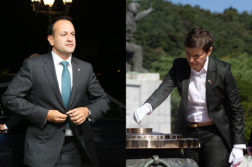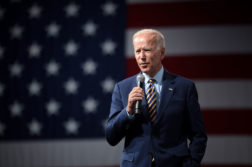Atauro Island is visible from the beaches of Dili, a barren stretch of hills rising out of the Wetar Strait. The interior is harsh terrain, inhabited by impoverished villagers who eke out a living farming goats and chickens, and harvesting yams and pineapples. The majority of Atauro’s 10,000 residents cling to the coast, fishing the island’s reefs.
I’m walking along the only road on Atauro, away from Vila, the island’s largest town and administrative centre. Half constructed, it is only passable for vehicles tough enough to tackle its rugged surface. In the dusty heat, a father approaches with his two young sons.
It is November 2009. Like me, and the rest of the town’s population, the trio have just attended celebrations marking the anniversary of East Timor’s independence from Portuguese colonial rule. The Portuguese started using Atauro as a prison island in the late 16th century and it was to Atauro that the Portuguese governor and his administration fled in 1975 on the outbreak of civil war. The island was used as a prison by the Indonesians too.
The children smile as they make their way towards us. They both hold miniature replicas of the traditional outrigger boats common to the region’s fishing communities, intricately constructed from bamboo and rattan. The father carries more boats in a large black bag and I ask him if they are for sale. Looking me up and down he says they cost US$10.
In broken Indonesian I tell him to travel the six kilometres to Beloi, further along the island’s coast, where he could sell the boats for more money to the many foreigners camping there. "Really?" he asks. Enlisting the help of passing children, the man and his salesmen stand with their armada until a passing vehicle stops. They pile into the back: arms, heads and boats sticking out everywhere.
When I returned to Beloi later that day I noticed a number of tourists carrying the boats. I asked one how much he had paid for it. "Thirty dollars," he said — a good result in a country where the average weekly income is US$10 a week.
This was no ordinary weekend on Atauro. 250 anglers, United Nations troops, members of the Portuguese Republican Guard, media, representatives from the country’s 13 districts, and the President himself, Jose Ramos-Horta, had descended on the island for East Timor’s first International Sport Fishing Competition.
Lured by a sense of adventure, the game fish, and the prize money on offer, many competitors had flown in from Darwin to attend. It ran like a military operation: tents, marquees and toilet blocks were erected for the crowds. Food and drinking water were shipped from Dili and UN vehicles travelled up and down the island’s road, ferrying people and equipment.
This was just one of a series of major events that Ramos-Horta hopes will showcase East Timor to the world. In August 2009, cyclists covered the 450-kilometre course of the inaugural Tour de Timor, a mountain bike race around the island. It was so successful that planning for a 2010 follow-up event is underway.
Events like these are an opportunity not only to display the beauty of the nation, but to demonstrate its ability to host international guests. I travelled to Timor for the fishing — and because I thought it would make a good story. When I explained my interest in Atauro, Ramos-Horta agreed to an interview.
"These events are designed to place Timor on the map because tourism is vital to our future," the President told me as we sat drinking local coffee in the shade offered by a beach bungalow. "It could employ thousands of people across a range of industries." Importantly these people would be employed outside the UN and NGO inflated economy of Dili.
Coffee production has been the staple of Timor’s economy since colonial times. Even though revenue has begun to flow from offshore energy projects, there remains a desperate need for economic development in order to provide employment and opportunity.
The President plans to continue raising Timor’s profile by hosting these events. "In addition to continuing the Tour and the fishing in 2010, we will be hosting the first Dili International Marathon as well as beginning filming of a Survivor-style reality TV program," he said.
While Ramos-Horta’s promotion of East Timor as a tourist destination might look like it’s starting from scratch, before the Indonesian invasion of 1975 the country enjoyed a good reputation with intrepid vacationers from Australia. In the 1960s, Europeans travelling the hippy trail ended the Asian leg of their journey in East Timor and Australians travelling in the opposite direction began there.
Sandra Lew Fatt runs a travel agency in Darwin and specialises in organising Northern Territory Government trips to the country. She has strong connections to East Timor, having lived there in the 1960s. She holidayed there frequently and organised cross-cultural exchanges when it was still a Portuguese colony. "In those days Bali wasn’t on the map and people from Darwin would travel to Timor," she said. "They were wonderful days and I made incredible friendships. The place was just starting to gear up for tourism before the civil war began in 1975 and Indonesia invaded shortly after."
Watching events unfold from Darwin, Sandra said her thoughts often wandered to her friends across the Timor Sea. She assisted refugees fleeing the civil war as they arrived in Darwin. Even though East Timor has been relatively peaceful in recent years she has still not travelled back, fearing her happy recollections of the past will be altered by the reality of the present. "I will go back when the time is right," she said. "But after everything that has happened I don’t want to go back to a place I once loved so much and see it destroyed."
Revenue from Timor Sea gas projects is helping to pay for some of the investment needed to develop the infrastructure seen as necessary to attract more tourists. "We are constructing luxury resorts, five star hotels and golf courses," Ramos-Horta told me. "We want people from around the world to look at Timor but particularly Australians. You travel all around the world to places in Europe, Asia, the Americas, so why not Timor? We are so close."
Ramos-Horta said he hopes his country does not end up like Cambodia, earning foreign dollars by selling its traumatic past to tourists hoping to see blood-splattered sites of mass murder and torture. "If I’m a tourist I don’t want to visit places that will give me nightmares," he said.
Having seen the success of Papua New Guinea in marketing the Kokoda Trail to Australian war history enthusiasts, however, the President believes there could be similar opportunities for East Timor. "This is ancient history to the Timorese," he observed. "This period was an epic struggle for the East Timorese and Australian people against the invading Japanese. While we don’t have anything on the scale of Kokoda, we could develop something to a smaller degree with historical tours."
These events promote Timor as a country of beauty and give visitors an appreciation of the Timorese people’s seemingly boundless hospitality and resilience. Ramos-Horta does recognise the problems that may arise from increases in affluent visitors. In a poor country with limited natural resources and an environment relatively untouched by heavy industry, increased pollution is a real possibility, as is an influx of sex tourists.
Having observed the experience of other South East Asian nations in managing tourism growth he sees the potential environmental and social problems arising as needing careful management. "When you look at other countries in our region there are potential social problems from increased numbers of tourists," he said. "East Timor is a very socially conservative country so social problems will create political problems."
On Atauro, even though the foreign competitors didn’t catch many fish, and despite an outbreak of food poisoning, the organiser of the fishing competition, Sean Borrell, declared the event a success — especially given the practical and logistical challenges it posed.
And when you take into account the fact that the tournament brought over US$30,000 to the island’s communities it is hard to argue otherwise. "For Atauro this is a massive cash injection that will circulate long after everyone packs up and goes home," Borrell said.
Donate To New Matilda
New Matilda is a small, independent media outlet. We survive through reader contributions, and never losing a lawsuit. If you got something from this article, giving something back helps us to continue speaking truth to power. Every little bit counts.



